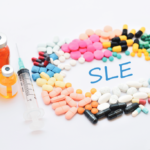Although blisibimod won’t be on the market in the near future because it did not meet its primary endpoint, Dr. Merrill believes it should be studied further. “One thing we understand about our field now is that it’s going to be complicated,” she says. “We need to put some time and energy into figuring out not just whether a drug works, but how it should be used, or where it fits in with what patients, and when and what medications it could or should be combined with.”
A better understanding of patient subsets and how background treatments affect these subsets would change everything for lupus treatment development, says Dr. Merrill. Specifically, she’s referring to identifying the patients most likely to benefit from any given treatment mechanism and eliminating patients who have no chance of responding, improving the interpretation of trials and providing a major advance in clinical care.
“You can’t overestimate the importance of our community of treatment developers, basic scientists and clinical rheumatologists working together to find a more sophisticated approach to studying drugs and applying them in practice. It illustrates some of the problems we need to solve in our field,” Dr. Merrill says, “problems that extend beyond lupus to all of our complex rheumatologic diseases.”
Renée Bacher is a frequent contributor to ENT Today and the AARP Bulletin. Her article about heart disease in women, “This Story Could Save Your Life,” won a recent National Health Information Award for Family Circle magazine.
Reference
- Merrill JT, Shanahan WR, Scheinberg M, et al. Phase III trial results with blisibimod, a selective inhibitor of B-cell activating factor, in subjects with systemic lupus erythematosus (SLE): Results from a randomised, double-blind, placebo-controlled trial. Ann Rheum Dis. 2018 Jun;77(6):883–889.


